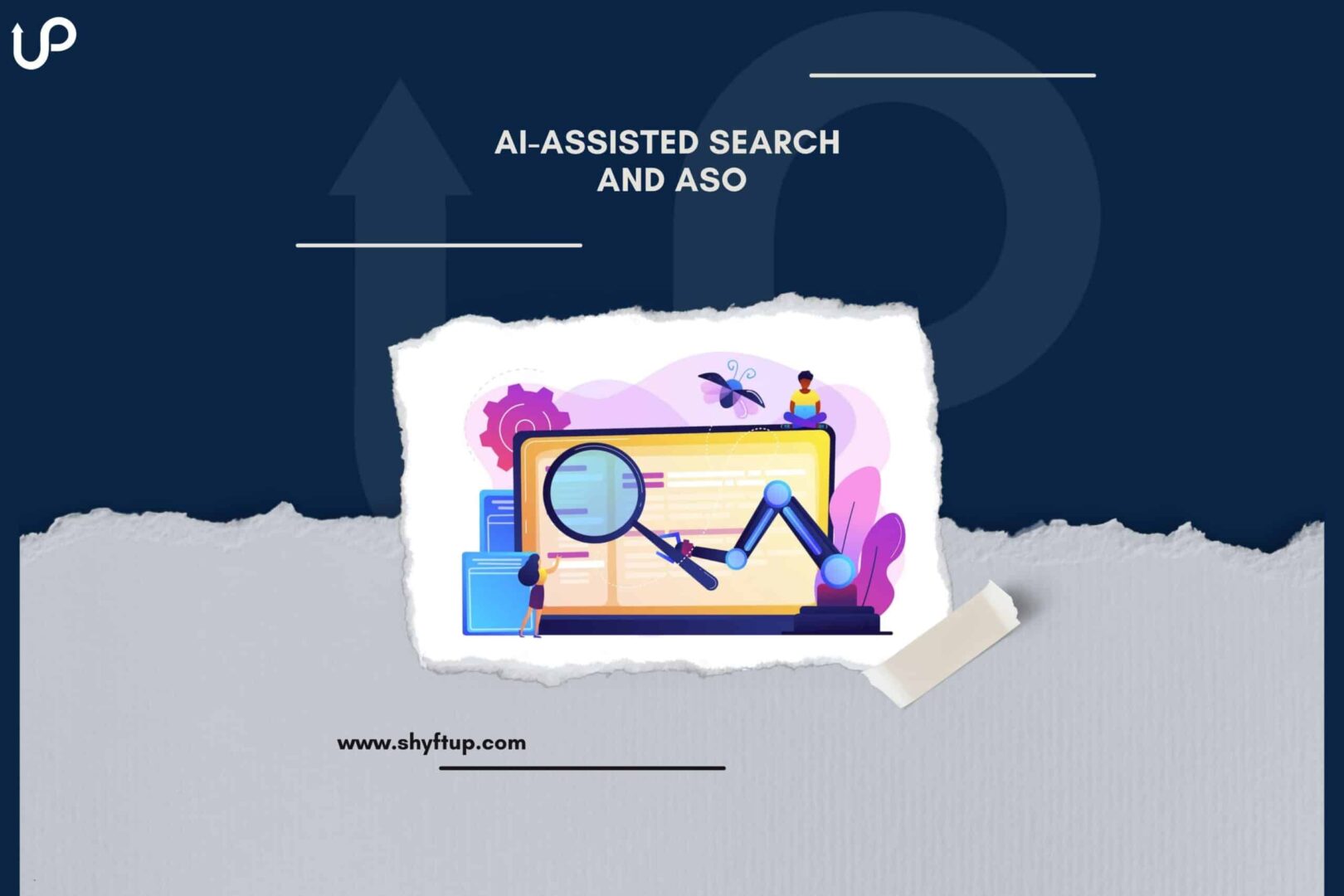
Have you ever wondered how AI-assisted search will impact App Store Optimization (ASO)? This is a valid question as we witness the pervasive influence of artificial intelligence in almost all aspects of our lives, including how we promote mobile apps and games.
In a digital landscape where apps and games rule, standing out from the crowd has become the ultimate quest for app developers and marketers. The power of being discovered can make or break an app’s success, and in this quest, the fusion of artificial intelligence (AI) and App Search Optimization (ASO) has emerged as a game-changer.
As technology giants like Google and Bing evolve their search engines, incorporating advanced AI capabilities like Google Bard and integrating natural language understanding, the ways in which users find and engage with apps are undergoing a seismic shift.
While AI-assisted search is still in its infancy, one thing is certain: it will profoundly influence how people discover apps, not only within web search engines but also in app stores such as the Google Play Store and the Apple App Store.
So, how exactly does AI-assisted search impact ASO today? Let’s delve into the details.
What is AI-assisted search?
To answer this question about AI-assisted search and ASO, you first need to know what AI is.
AI stands for artificial intelligence, and this term refers to machines or computer systems that mimic human intelligence. With AI, machines or computers can perform tasks that typically require human intervention. AI can copy the learning, reasoning, problem-solving, and perception abilities of people.
With that in mind, AI-assisted search is using AI to improve the process of searching for products, services, and information on the Internet. Two of the most popular search engines on the Internet today use AI to assist in search queries. These search engines include Google, which uses Bard, and Bing, which uses ChatGPT.
With AI-assisted search, search engines aim to provide more accurate, revelation, and even personalized search results to users.
What is App Search Optimization?
App Search Optimization (ASO) is a critical process in the world of mobile apps, designed to improve an app’s visibility and discoverability within app stores. By optimizing various elements of an app’s listing or page, such as keywords, icons, app names, screenshots, descriptions, and videos, ASO aims to enhance an app’s ranking and increase its chances of being found by potential users.
How does AI-assisted Search affect App Search Optimization?
For users, AI-assisted search and ASO improve relevance and personalization of their search results. With AI, users can have more information about their query rather than just giving a list of websites to visit.
On the other hand, AI-assisted search helps app developers and marketers as well. If you have observed, ASO tools are now adding AI features, which can now be seen in keyword optimization, competitive analysis, user behavior analysis, A/B testing automation, and predictive analytics.
AI-Assisted Search on Google
Google, the world’s largest search engine, has harnessed the power of AI-assisted search and App Search Optimization (ASO) to reshape how users discover and interact with mobile apps. Let’s delve into how Google employs these technologies to enhance app visibility and engagement.
When you directly visit Google.com and input your search query, it may appear like a typical search engine, delivering a plethora of relevant articles in the search results. However, Google’s AI-enhanced search goes a step further by seamlessly integrating specific apps from the Google Play Store into these results. This means that users searching for information may encounter mobile apps that align with their query.
To illustrate, suppose we enter the query, “the best photo editing app” on Google. Here’s what we find:
As you can see, the search results include a list of photo editing apps. However, clicking on these app listings doesn’t provide a direct link to the app store listing.
Nevertheless, by refining our search query to “the best photo editing app in the Google Play Store,” the search results take on a more specific and app-focused form:
In addition to listing photo editor apps, these results also furnish direct links to the Google Play Store. This presents a significant opportunity for app developers and marketers to enhance their app’s visibility beyond the confines of the app store. If your app’s store listing has been meticulously optimized with search engines in mind, incorporating relevant keywords and content, it stands a better chance of landing on the first page of search engine results.
However, the innovation doesn’t end there. Enter Bard, Google’s response to ChatGPT, which raises the bar for AI-driven search experiences. By prompting Bard with a query like “Find me the best photo editing app on the Google app store,” you can unlock a new dimension of search results:
Google Bard excels in offering direct Google Play Store links, making the user journey more seamless. If your app is among the results or featured answers provided by Bard, your app’s visibility receives a significant boost, reaching a broader audience and achieving greater prominence in search results.
Why You Should Consider AI-Assisted Search for ASO?
In simple terms, Artificial Intelligence is the future. Given the immense power of AI, an increasing number of companies will seek ways to harness its potential. AI has firmly established itself, and its presence is here to stay. You can anticipate that additional AI capabilities will be integrated into web search engines. Moreover, it’s only a matter of time before AI-assisted search becomes more prominent within app stores like the Play Store and App Store.
How to prepare for AI-Assisted Search for ASO?
In a rapidly evolving digital landscape where Artificial Intelligence (AI) is taking center stage, preparing your App Store Optimization (ASO) for AI-assisted search is paramount. The key to AI-assisted ASO success in this dynamic environment is to keep your users at the forefront of your strategy.
Regardless of future developments, the fundamental reason people use search engines remains unchanged: to find what they are looking for. By adopting user-centric approaches in your ASO efforts, you not only improve your rankings in conventional searches but also position yourself for success in AI-driven searches, including those powered by Bard and within app stores.
Here are essential strategies to optimize your app for AI-assisted searches:
Craft Relevant, High-Quality App Descriptions:
- Avoid keyword stuffing, as it can make your description confusing and unappealing to users.
- Always prioritize user relevance and ensure that your description aligns with search intent.
Strategically Use Keywords:
- Identify and incorporate the right keywords naturally into your app’s title, description, and relevant fields.
- Keywords should seamlessly blend with the content, enhancing the user’s understanding of your app.
Regularly Update Your App:
- AI-assisted searches favor active and well-maintained apps.
- Periodically release updates, fix bugs, and introduce new features to keep your app relevant and appealing.
Encourage User Reviews:
- Positive reviews play a pivotal role in app ranking.
- Encourage satisfied users to leave reviews, boosting your visibility in AI-assisted searches.
Incorporate Visual Elements:
- Include engaging screenshots and videos in your app listing.
- While AI-assisted searches may not yet efficiently recognize images, preparing your app with visual elements ensures readiness for future updates.
Prioritize App Quality:
- AI discerns app quality, just like users do.
- Deliver a high-quality, reliable app to build a reputation that AI recognizes and rewards with increased visibility.
Be ready for AI-Assisted Searches
Artificial intelligence is poised to continue shaping the landscape of mobile apps. Therefore, it’s imperative to prepare for the profound changes it will bring. The time to ready yourself for this transformation is now.
Remaining informed and up-to-date is essential when it comes to AI-assisted searches and the accompanying developments. However, mere awareness is insufficient. Understanding how to effectively leverage these new updates is the key to securing a dominant position in the market.
Thankfully, you don’t need to do all the work. ShyftUp is here for you.
ShyftUp is among the leading user acquisition agencies in the world today. They constantly stay abreast with the latest trends and news that affect the world of mobile apps. Partnering with ShyftUp gives you access to the latest tools and strategies that will help you stay on top of the competition.
Give them a try today and see how they can help you succeed!
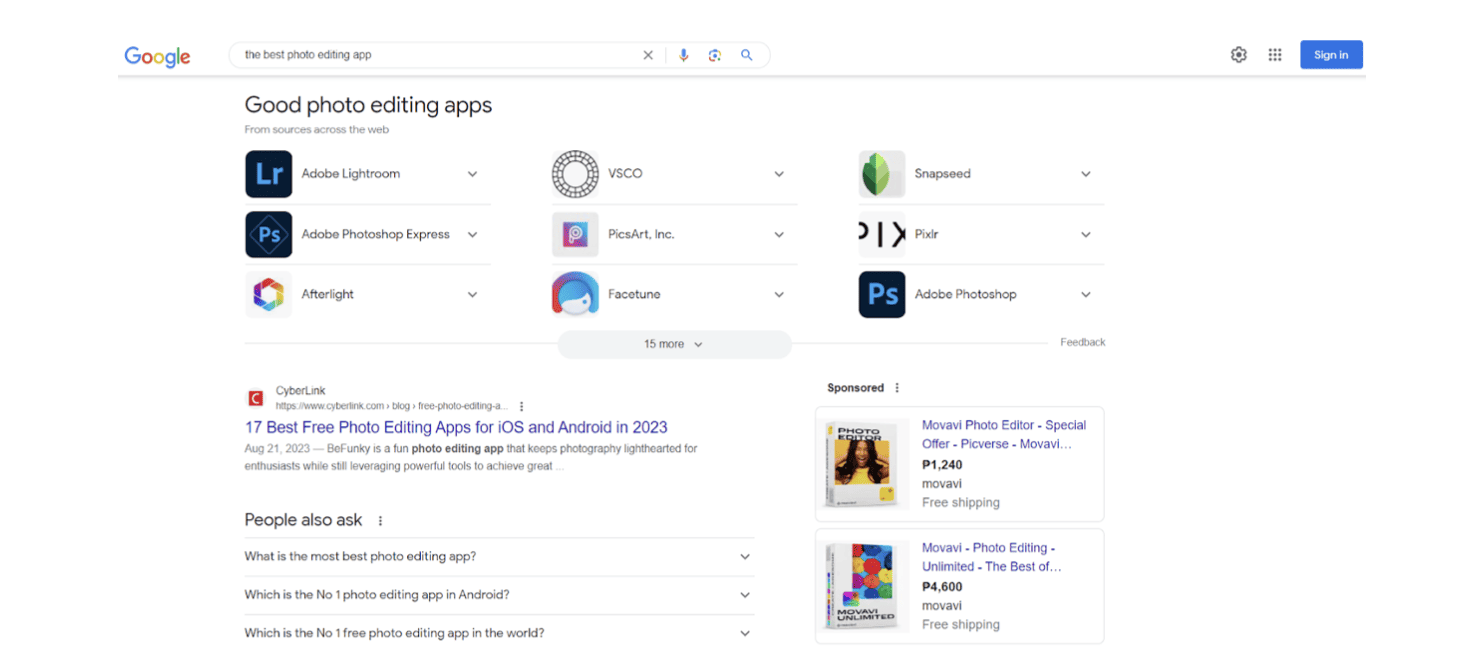
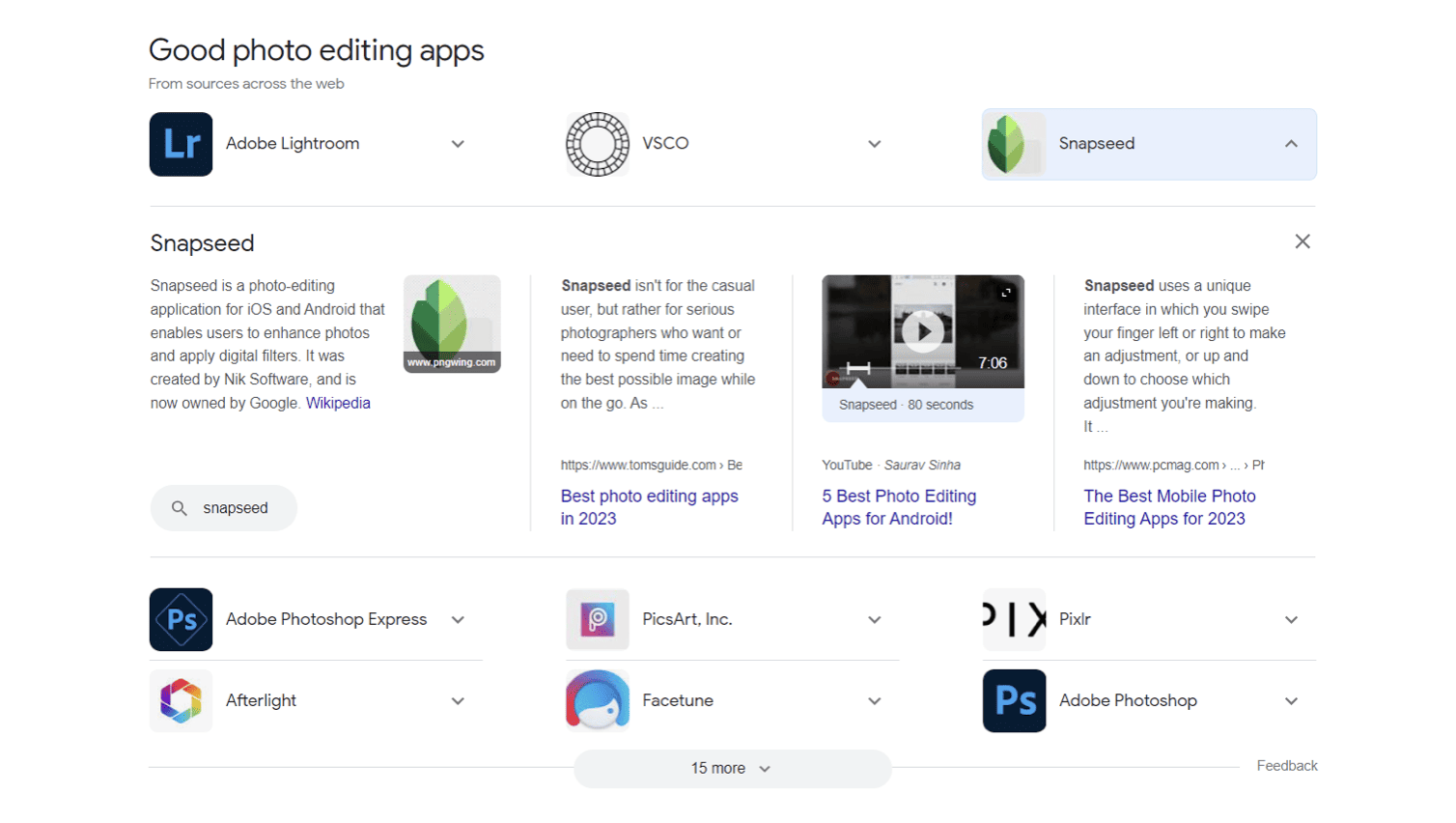
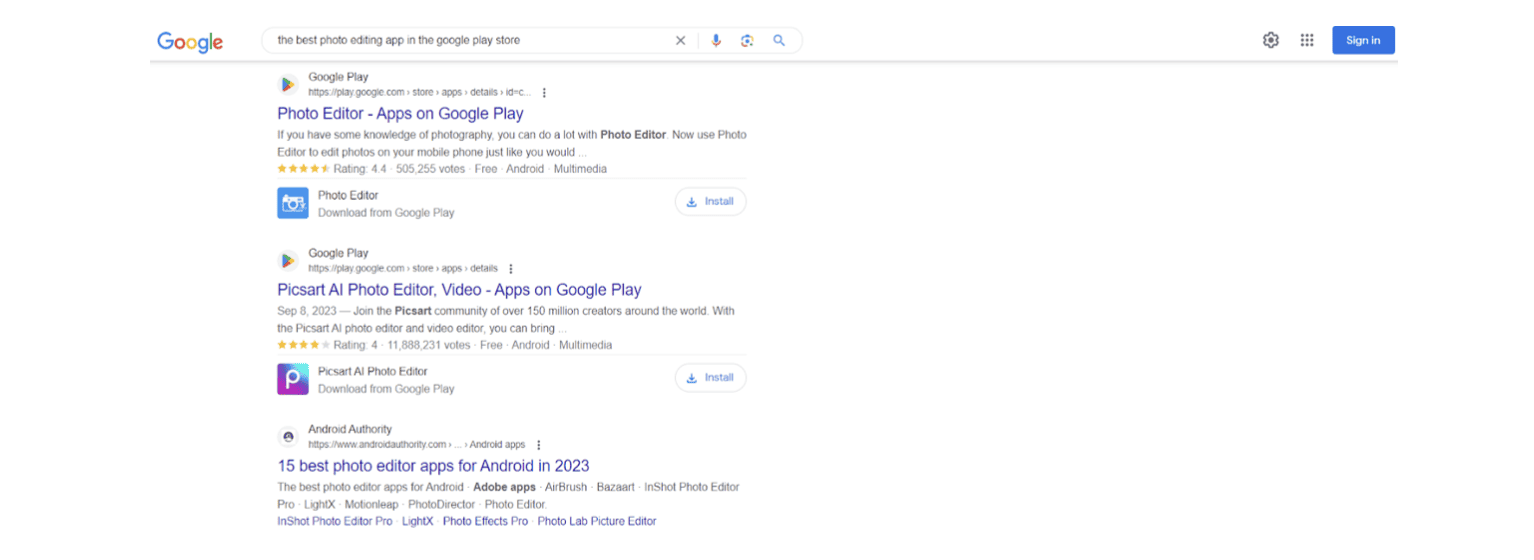
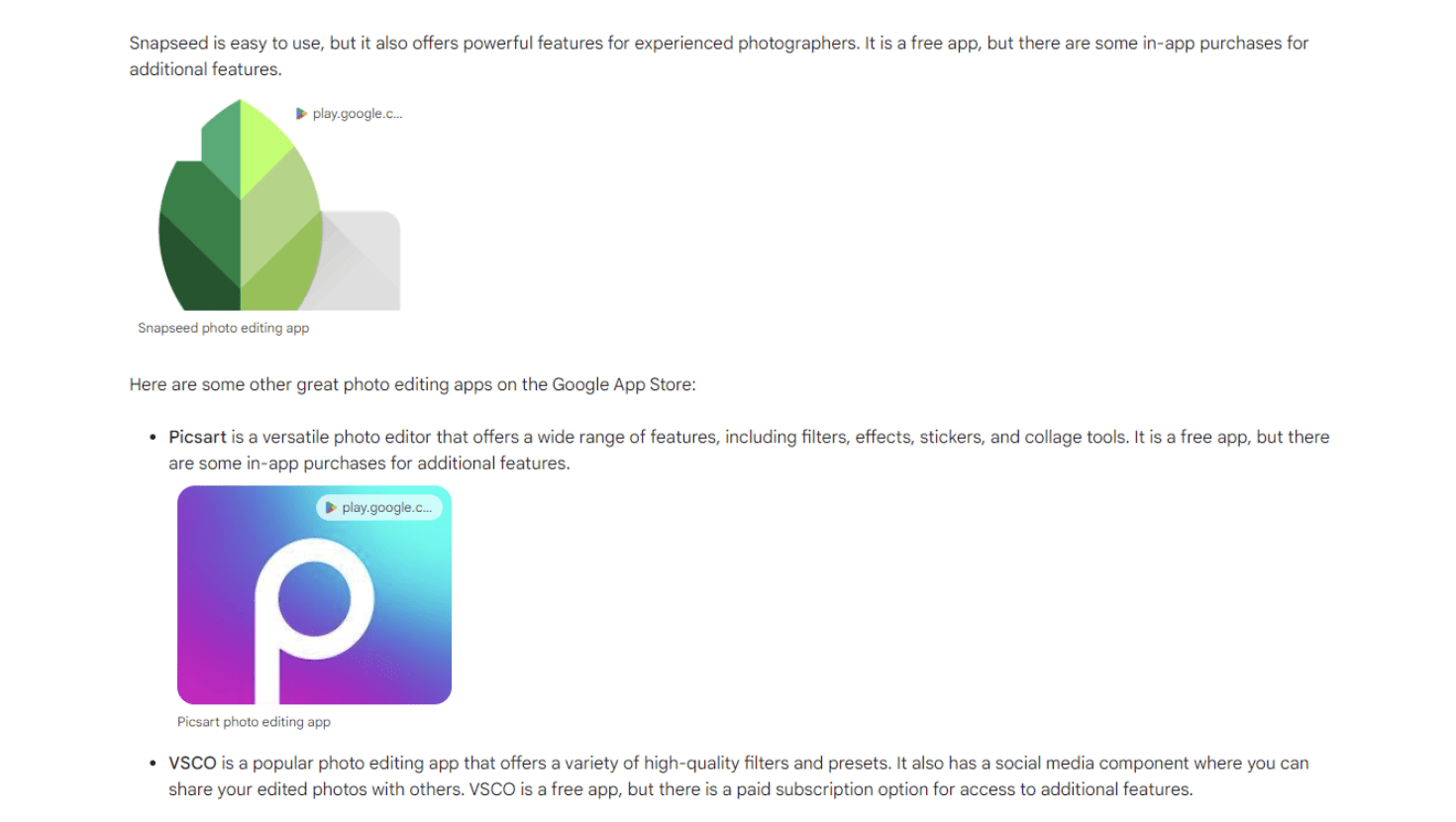
One comment on “AI-Assisted Search and ASO”
Appreciate this post. Will try it out.